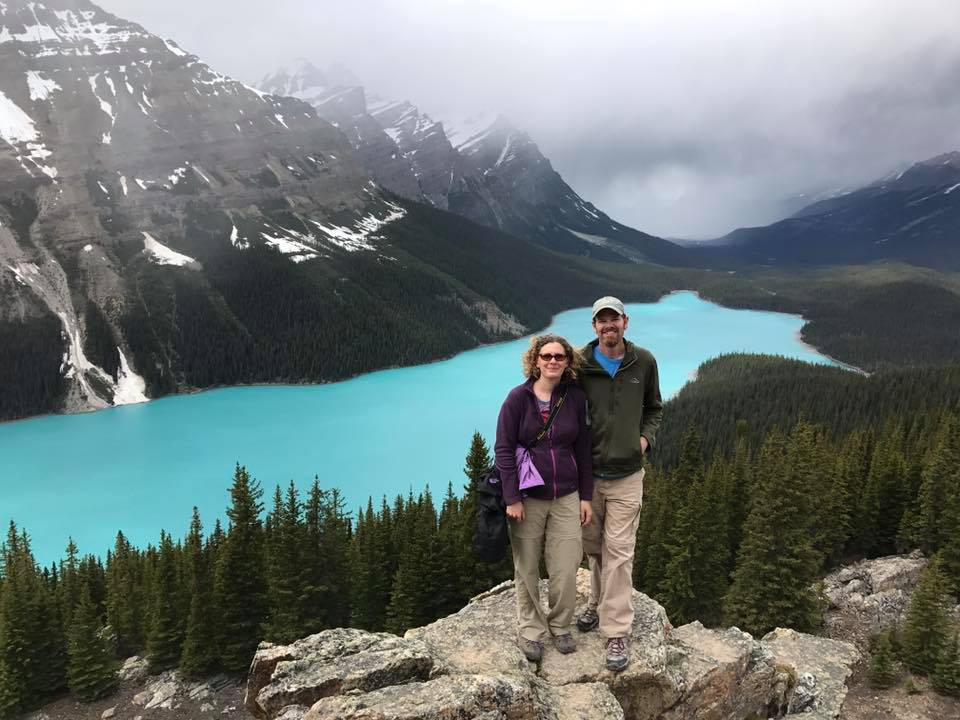
Earth science professor uses his travels to inspire students
For USD earth science professor Mark Sweeney, the study of Earth isn’t only an occupation, it’s a passion that extends beyond campus.
Sweeney and his wife, who is also an earth science professor at Wayne State College, have traveled to multiple locations in the United States to attend conferences, conduct research and see nature.
Sweeney said some of his favorite trips have been to Canada, Northern China and Israel, although most of his research trips are taken locally and to the American Southwest deserts.
“A lot of my research is within the United States,” Sweeney said. “I have long-standing projects in the Southwest deserts, in the Mojave Desert and the Sonoran desert, and I have some research projects going on more locally along the Missouri River.”
Sweeney’s research focuses mainly on dust, and how it can affect the climate and cause traffic accidents.
“(Dust is) my expertise,” Sweeney said. “I look at the erosion, transportation and deposition of dust. It mostly takes me to dry, desert areas.”
In the classroom
Zachary Dibbern, a sophomore conservation biology major, said Sweeney’s experience has helped him and other students.
“I think it’s easy to be book smart and anyone can read from a textbook and know about a subject,” Dibbern said. “Being able to actually go out and experience those things for yourself really helps you to visually be able to physically see and have that hands-on experience, which has helped us and helped him be able to classify.”
Sweeney said his research and traveling has made his teaching more authentic and inspiring for students.
“I do incorporate my research experiences into my teachings, so that wherever I go, whether it’s for research or for vacation, I take a lot of photographs, and then I incorporate the photographs of those geological features that I see into my lectures,” Sweeney said. “I think students appreciate that I have this experience to draw upon.”
Sweeney said having hands-on experience creates more passionate teaching than a textbook lecture.
“You can read about things in a book and try to convey to students what those are, but I don’t know that you can as accurately or as passionately talk about those things,” Sweeney said. “But if you’ve actually experienced them, then you have a different perspective, and that comes a passion in teaching that the students catch on to.”
Collaborative teaching
Sweeney and his wife, Kelly Dilliard, met at Washington State University, where they both received their Ph.Ds. They were married in 2007.
Dilliard said she also tries to bring their research and travel experiences to students in her classroom at WSC.
“You can’t always take them to the place because it’s so far away and remote, but you can bring that experience back by being in the pictures,” Dilliard said. “Mark is often a scale in a lot of my pictures, so they can kind of get the idea that we were there. It makes it more real than if it was just a static picture you took out of a textbook.”
Dilliard said having personal experiences helps students relate to the material.
“That personal story just helps a lot. I’ve been teaching about earthquakes for about 15 years, but I’ve never experienced one, so I can’t really tell you what it feels like,” Dilliard said. “I spend a lot of time trying to bring up those personal experiences that they’ve had as well because then they can really relate to the content.”
‘You only live once’
Sweeney said although he has never been able to plan a trip to experience an event such as an earthquake, he and his wife’s trip to the Yellowstone super volcano was a geological thrill.
“You’re going to a place that you know has been geologically active in the past, and even though there isn’t a threat of impending eruption now, just sitting in the caldera of that super volcano makes you think twice about where you’re at,” Sweeney said.
Sweeney also said he and his wife aren’t scared to take risks.
“You only live once. Our curiosity of these things really drives us to go and see and experience nature and just because you don’t know when an earthquake is going to happen or when a volcano is going to erupt shouldn’t stop a person from traveling and experiencing nature,” Sweeney said. “I don’t want to live my life in fear, if we want to go explore and see things then we will.”

